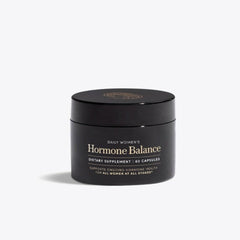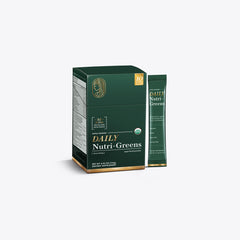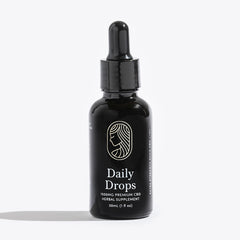Picture this: a bustling microbial metropolis right under your nose – or rather, inside your gut! It’s a vibrant world where trillions of tiny beings, each no larger than a speck of dust, are working their magic day and night. Welcome to the gut microbiome, the hidden powerhouse within us that’s not only shaping our digestion, but also wielding surprising influence over our health, immunity, and overall wellness. So, let’s take a plunge into the depths of our digestive universe, where the residents are anything but ordinary, and the secrets they hold might just change the way you think about your body forever.
The Science of the Gut Microbiome: Breaking it Down
 Bacteria, viruses, and fungi are the little creatures living in your stomach and intestines and are collectively known as the gut microbiome. Just like in a city, these microbes have different jobs. Some are like construction workers, helping to build and repair things in your body. Others are like garbage collectors, getting rid of waste and keeping things clean.The cool thing is, these microbes also talk to each other, and to your body! They send messages that help your immune system, which is like your body’s defense team, know when there’s trouble – they even send signals to your brain, affecting things like how you feel and what you crave to eat. 1 However, like any city, your gut microbiome needs balance. You want more of the good microbes and fewer of the bad ones. When the balance is tilted, it can cause gastrointestinal problems like upset stomach, and even affect your mood. 2 What you eat also matters – just like people in a city need food, these microbes do too! Some foods make the good microbes happy and help them do their jobs better, while other foods can make the bad microbes party too much and cause trouble. Feed them well, keep them balanced, and they’ll help you stay healthy and happy. 3
Bacteria, viruses, and fungi are the little creatures living in your stomach and intestines and are collectively known as the gut microbiome. Just like in a city, these microbes have different jobs. Some are like construction workers, helping to build and repair things in your body. Others are like garbage collectors, getting rid of waste and keeping things clean.The cool thing is, these microbes also talk to each other, and to your body! They send messages that help your immune system, which is like your body’s defense team, know when there’s trouble – they even send signals to your brain, affecting things like how you feel and what you crave to eat. 1 However, like any city, your gut microbiome needs balance. You want more of the good microbes and fewer of the bad ones. When the balance is tilted, it can cause gastrointestinal problems like upset stomach, and even affect your mood. 2 What you eat also matters – just like people in a city need food, these microbes do too! Some foods make the good microbes happy and help them do their jobs better, while other foods can make the bad microbes party too much and cause trouble. Feed them well, keep them balanced, and they’ll help you stay healthy and happy. 3
Fun facts about the gut microbiome:
- Microbial Diversity Galore: Your gut is a microbial melting pot, with more than 1,000 different species of bacteria, and the total number of microbial genes in your gut far exceeds the number of genes in your own DNA! It’s like having your very own microbial entourage. 4
- Microbial Menu Influencers: Your gut microbes aren’t just passive bystanders; they actually influence your food cravings and preferences. Craving that slice of cake? It might not just be you – your gut bacteria might be sending signals to your brain to join the dessert party. 2
- Superhero Immunity: Good gut bacteria are your immune system’s sidekicks, training it to recognize friend from foe. They help keep inflammation in check and defend against pathogens. 1
- Fermentation Festival: Gut bacteria are fermentation experts. They break down indigestible fibers in foods, producing short-chain fatty acids that nourish the cells lining your gut and support overall gut health. 5
What can negatively impact the gut microbiome?
 We already know balance is key especially when it comes to our gut microbiome. Below are some points that can tip that balance toward the unwanted:
We already know balance is key especially when it comes to our gut microbiome. Below are some points that can tip that balance toward the unwanted:
- Unhealthy food choices: Eating too much junk food and sugary treats can make the bad microbes happy and lead to an imbalance in your gut. 3
- Alcohol: Just like with unhealthy food choices excessive alcohol consumption can irritate the gut lining causing inflammation. In some cases, this can cause a “leaky gut” where bacteria can enter the bloodstream and cause further problems. 6
- Antibiotics overuse: Antibiotics are like superheroes fighting bad bacteria, but they can also hurt the good ones in your gut if you take them too often.
- Too much stress: High-stress levels can make your gut microbes go out of balance and cause digestive problems. This means that there are fewer good bacteria to keep you going while also being more vulnerable to bad bacteria getting to places in your body that they shouldn’t be. This influences your stress response and can lead to a cycle that takes time to rebalance. 7
- Lack of fiber: Not eating enough fruits, vegetables, and whole grains can make the good microbes hungry and weak.
- Lack of sleep: Skimping on sleep can mess up your gut microbes and affect your digestion. Just like with so many systems in our bodies, sleep is crucial for maintaining optimal balance.
Know the Signs: What is Your Gut Telling You?
 Many signs can point to an imbalance in your microbiome. Listening to your body is your first line of defense to understanding what you personally need to take care of yourself.
Many signs can point to an imbalance in your microbiome. Listening to your body is your first line of defense to understanding what you personally need to take care of yourself.
- Gastrointestinal Discomfort: If you often experience indigestion, diarrhea, constipation, gas, or bloating after eating, the health of your gut may be catching your attention.
- Nutritional Deficiencies: Your gut microbiome has the ability to process foods and excrete potentially harmful byproducts – without a strong gut barrier not only do you leak bad bacteria into your circulation, but you also may not be efficiently absorbing the good nutrients from the food you’re eating! 5
- Poor Immune System: The more diverse your microbiome is, the better your immune cells function to process the difference between harmful pathogens and harmless bacteria. If your immune system is not effectively differentiating the good from the bad, you may be more susceptible to getting sick. 1
- Headaches, brain fog, memory issues: The connection between the gut and brain, also known as the gut-brain axis, involves multiple vital pathways in the body. This directly affects brain behavior and cognitive development and this can look like day-to-day dysfunction like lack of focus or headaches.8
- Mood fluctuations and mental imbalances: The gut-brain axis can also influence processes like the production of neurotransmitters like serotonin, melatonin, and acetylcholine – this can modulate brain function like your emotions and stress-related responsiveness. Imbalances can lead to more chronic conditions such as depression or anxiety. 8
- Fatigue and sleep issues: Approximately 45% of the US population experiences persistent fatigue.9 Serotonin is produced in the intestines and is associated with sleep among many other things. A disrupted microbiome can directly impact restful sleep and your energy during the day, leaving you mentally and physically exhausted.
- Skin rashes: Your skin has a microbiome of its own, however, there are direct connections between skin and gut microbiome, also known as the gut-skin axis. An impaired gut microbiome can trigger immunological responses like allergic reactions or dermatologic conditions, such as atopic dermatitis or acne. 10
- Cravings for sugar and carbs: Our gut microbiomes play an important role in the foods we crave. As more studies emerge, researchers have even shown that mice with microbiomes disrupted by antibiotics consumed 50% more sugar than balanced microbiomes. 11
Supporting Your Gut Health
With all this talk about the benefits of having a healthy gut, you may be wondering how you can get started with feeding the marvelous microbial world inside you! Below we will discuss prebiotics and probiotics, their benefits, and how to incorporate them into your diet:
Prebiotics
 Prebiotics are non-digestible dietary fiber and compounds that serve as a food source for our gut bacteria. In essence, prebiotics are substances that promote the growth and activity of these beneficial microorganisms in the gastrointestinal tract. Prebiotics pass through the stomach and small intestine intact and reach the colon, where they are fermented by beneficial bacteria. This fermentation process produces short-chain fatty acids (SCFAs), primarily acetate, propionate, and butyrate, which have numerous health benefits. 5 Prebiotics are often found in various types of plant-based foods and play a significant role in supporting gut health and overall well-being. Below are some examples of prebiotics:
Prebiotics are non-digestible dietary fiber and compounds that serve as a food source for our gut bacteria. In essence, prebiotics are substances that promote the growth and activity of these beneficial microorganisms in the gastrointestinal tract. Prebiotics pass through the stomach and small intestine intact and reach the colon, where they are fermented by beneficial bacteria. This fermentation process produces short-chain fatty acids (SCFAs), primarily acetate, propionate, and butyrate, which have numerous health benefits. 5 Prebiotics are often found in various types of plant-based foods and play a significant role in supporting gut health and overall well-being. Below are some examples of prebiotics:
- Inulin: Found in foods like chicory root, Jerusalem artichokes, and garlic.
- Fructooligosaccharides (FOS): Present in foods like onions, leeks, and asparagus.
- Galactooligosaccharides (GOS): Found in legumes (especially chickpeas and lentils) and certain dairy products. 12
- Resistant Starch: Found in foods like undercooked potatoes, green bananas, and certain whole grains.
Probiotics
Probiotics are live microorganisms that are beneficial for your health when consumed in adequate amounts. These microorganisms, primarily bacteria, provide various health benefits by positively influencing the balance and activity of the gut microbiota, which refers to the community of microorganisms residing in your digestive tract. Probiotics in our diets can be used as a way to prevent imbalances in our gut microbiome especially when exposed to prolonged antibiotic therapy, chronic stress, or other physical conditions. 12 There are many different ways to incorporate probiotics into a balanced diet and below are just a few examples:
- Yogurt: Yogurt is one of the most well-known sources of probiotics. Look for yogurts labeled as containing live and active cultures, which usually include strains like Lactobacillus and Bifidobacterium.
- Kefir: Kefir is a fermented dairy product similar to yogurt but has a thinner consistency. It contains a variety of probiotic strains and is rich in nutrients.
- Fermented Foods: Foods like sauerkraut, kimchi, pickles, and traditional miso are fermented and contain probiotics. They are made through a natural fermentation process that involves beneficial bacteria.
- Kombucha: Kombucha is a fermented tea beverage that contains probiotic cultures. It’s often flavored with fruits or herbs and can be found in health food stores.
- Tempeh: Tempeh is a fermented soybean product that originates from Indonesia. It’s a good source of probiotics and protein.
- Sourdough Bread: Some sourdough breads are made using a natural fermentation process that involves lactobacilli, which can act as probiotics.
- Supplements: Probiotic supplements are available in various forms, such as capsules, tablets, and powders. They can contain a wide range of probiotic strains and are often used to boost gut health.
When choosing probiotic-rich foods, make sure to read labels to identify the specific strains of probiotics they contain. The effectiveness of probiotics can vary based on the specific strains and the individual’s health needs, so it’s always a good idea to consult with a healthcare professional before making significant changes to your diet or taking supplements. For more ways to support your gut health check out our Microbiome Primer!
Resources:
- Belkaid Y, Hand T. Role of the Microbiota in Immunity and inflammation. Cell. 2014;157(1):121-141. doi:10.1016/j.cell.2014.03.011
- Alcock J, Maley CC, Aktipis CA. Is eating behavior manipulated by the gastrointestinal microbiota? Evolutionary pressures and potential mechanisms. Bioessays. 2014;36(10):940-949. doi:10.1002/bies.201400071
- Singh RK, Chang HW, Yan D, et al. Influence of diet on the gut microbiome and implications for human health. J Transl Med. 2017;15(1):73. doi:10.1186/s12967-017-1175-y
- Qin J, Li R, Raes J, et al. A human gut microbial gene catalog established by metagenomic sequencing. Nature. 2010;464(7285):59-65. doi:10.1038/nature08821
- Flint HJ, Scott KP, Louis P, Duncan SH. The role of the gut microbiota in nutrition and health. Nat Rev Gastroenterol Hepatol. 2012;9(10):577-589. doi:10.1038/nrgastro.2012.156
- Engen PA, Green SJ, Voigt RM, Forsyth CB, Keshavarzian A. The Gastrointestinal Microbiome: Alcohol Effects on the Composition of Intestinal Microbiota. Alcohol Res Curr Rev. 2015;37(2):223-236. https://pubmed.ncbi.nlm.nih.gov/26695747/
- Foster JA, Neufeld KAM. Gut–brain axis: how the microbiome influences anxiety and depression. Trends Neurosci. 2013;36(5):305-312. doi:10.1016/j.tins.2013.01.005
- Almeida C, Oliveira R, Soares R, Barata P. Influence of gut microbiota dysbiosis on brain function: a systematic review. Porto Biomed J. 2020;5(2):1-8. doi:10.1097/j.pbj.0000000000000059
- Park SY, Hwang BO, Lim M, et al. Oral–Gut Microbiome Axis in Gastrointestinal Disease and Cancer. Cancers. 2021;13(9):2124. doi:10.3390/cancers13092124
- Mahmud MdR, Akter S, Tamanna SK, et al. Impact of gut microbiome on skin health: gut-skin axis observed through the lenses of therapeutics and skin diseases. Gut Microbes. 14(1):2096995. doi:10.1080/19490976.2022.2096995
- Ousey J, Boktor JC, Mazmanian SK. Gut microbiota suppress feeding induced by palatable foods. Curr Biol. 2023;33(1):147-157.e7. doi:10.1016/j.cub.2022.10.066
- Gagliardi A, Totino V, Cacciotti F, et al. Rebuilding the Gut Microbiota Ecosystem. Int J Environ Res Public Health. 2018;15(8):1679. doi:10.3390/ijerph15081679



